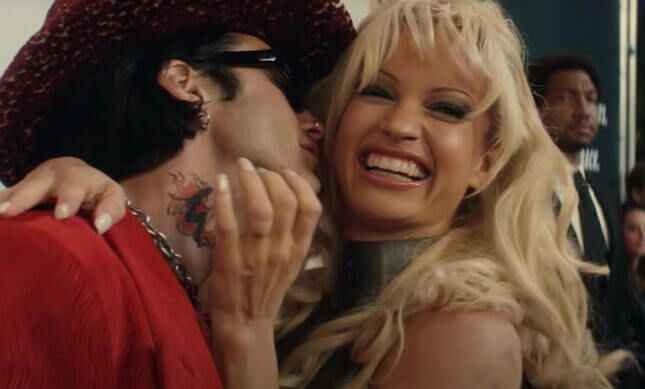Pamela Anderson Didn’t Sign Off On Pam & Tommy. Should the Show Even Have Been Made?
The story of her sex tape theft is a murky combination personal nightmare and public cultural history.
EntertainmentTV

The most discomfiting thing about Pam & Tommy is how entertaining it is—the show is so awash in nostalgia-perfect needle drops, so filled with over-the-top club scenes, that you could almost forget that it’s about a sex crime and its aftermath. In 1995, Pamela Anderson and Tommy Lee, played in the series by Lily James and Sebastian Stan, were robbed by Rand Gauthier, a contractor and former porn actor who stole a safe from their property, he says, in order to recoup losses sustained when Lee refused to pay him for construction work he’d done. (He also alleges that Lee pulled a gun on him.) The safe contained jewelry, more guns, and a home sex tape that would become infamous. With the help of one of his porn world contacts, Gauthier began selling copies of the tape online. Anderson and Lee later signed over their rights, though both say they never earned money from it.
Hulu’s new series is based on a 2014 Rolling Stone feature, and as far as grist for the true-story mill goes, it’s a worthy tale: Few crimes result in the creation of a new cultural medium (in this case, the internet-distributed sex tape), and few so wholly capture the ugly spirit of an era. But Pamela Anderson, the person most victimized by the crime, didn’t sign off on its production and is reportedly “horrified” that the show was made. Anderson didn’t want her story to be dramatized, at least not in this way. Does that mean it shouldn’t have been told at all?
-

-

-

-

-

-

-

-

-

-

-

-

-

-

-

-

-

-

-

-

-

-

-

-

-

-

-

-

-

-

-

-

-

-

-

-

-

-

-

-








































